April 2023
Termine 
Grüße aus dem Studio. Wir haben einige Termine und Neuigkeiten zu verkünden!
Termine des studios:
17.04.2023 // 16h15-17h45 // Dr. Kristina-Pia Hofer (Universität für Angewandte Kunst Wien)
Sonic Methodology and Audiovisual Relations: Unlearning the Separation of the Senses for Film/Media Studies // Seminarraum 1, Institut für Europäische Ethnologie, Hanuschgasse 3, 1010
Discussions of sound as a material phenomenon in the field of contemporary artistic practices often resort to an ontological split that Jonathan Sterne (2012) calls “the audiovisual litany:” they frame sound/hearing as immersive, affective, subjective, vibrant, and relational, and contrast it with vision/looking as a distancing, intellectual, objective sense that privileges stasis and separation. As one result of this split, (‘new’) materialist sound art theories frequently abandon questions of media history and representation (as in: Hall 1997), and favor tracing political potentiality in ostensibly ‘indivisible,’ direct encounters of sounding and listening agents (exemplary: Voegelin 2021). To film/media studies, this split poses a distinct methodological challenge. On the one hand, sound art theory can lend an experimental vocabulary and a conceptual openness to think the sonicity of film and video as event, and in terms of its sensory textures, affordances, and intensities. On the other hand, materialist sound art theories’ ‘audiocentrism’ and their privileging of experiential immediacy over the power of (historical and/or ‘old materialist’) structure uninvites two crucial sets of questions: a) the inquiry into audiovisual signification, i.e., how sonic materialities (co-)produce sense, meaning, and relevance in relation to and intra-action with film and video images, and b) the inquiry into the situatedness of film and video as non-innocent audiovisual technologies, i.e., how practices of sound recording, archiving, and dissemination take active part in identifying and policing (epistemological) ‘Others,’ and how they can reify biopolitics of gender, class, and race that are dominant in a given time and context. My presentation offers a ‘workshop talk’ on the ‘sonic,’ yet audiovisually grounded methodology I am currently testing out for my post-doc thesis Situating Cinesonics (FWF: V770-G) hopefully followed by an in-depth discussion with all participants.
Das Forschungsprojekt „Realfiktion Klimarechnungshof“ geht in seine zweite Phase und lädt zu unwahrscheinlichen Versammlungen ein. Die Gründung des Klimarechnungshofs steht im nächsten Akt „Versammlung“ an und in der Folge werden dann mögliche Prüfgegenstände ausgewählt („Eingabe“) und geprüft („Prüfung“), um schließlich davon zu berichten („Pressekonferenz“). Die „Versammlung“ findet am 24.4.2023 im Volkskundemuseum statt. Wie für alle folgenden Termine auch gibt es mehr Informationen und Anmeldemöglichkeiten auf unserer Homepage „Klimarechnungshof Jetzt!„
15.05.2023 // 16h15-17h45// Işıl Karataş
Analogue Practices in Digital Landscapes // Seminarraum 1, Institut für Europäische Ethnologie, Hanuschgasse 3, 1010
We will watch Işıl Karataş’s experimental ethnographic film about analogue film cultures in Vienna, Berlin and Istanbul during the seminar Cultures of Perception offered by Işıl Karataş and Susanna Azevedo. Afterwards, we will discuss the film with the students. Be warmly invited!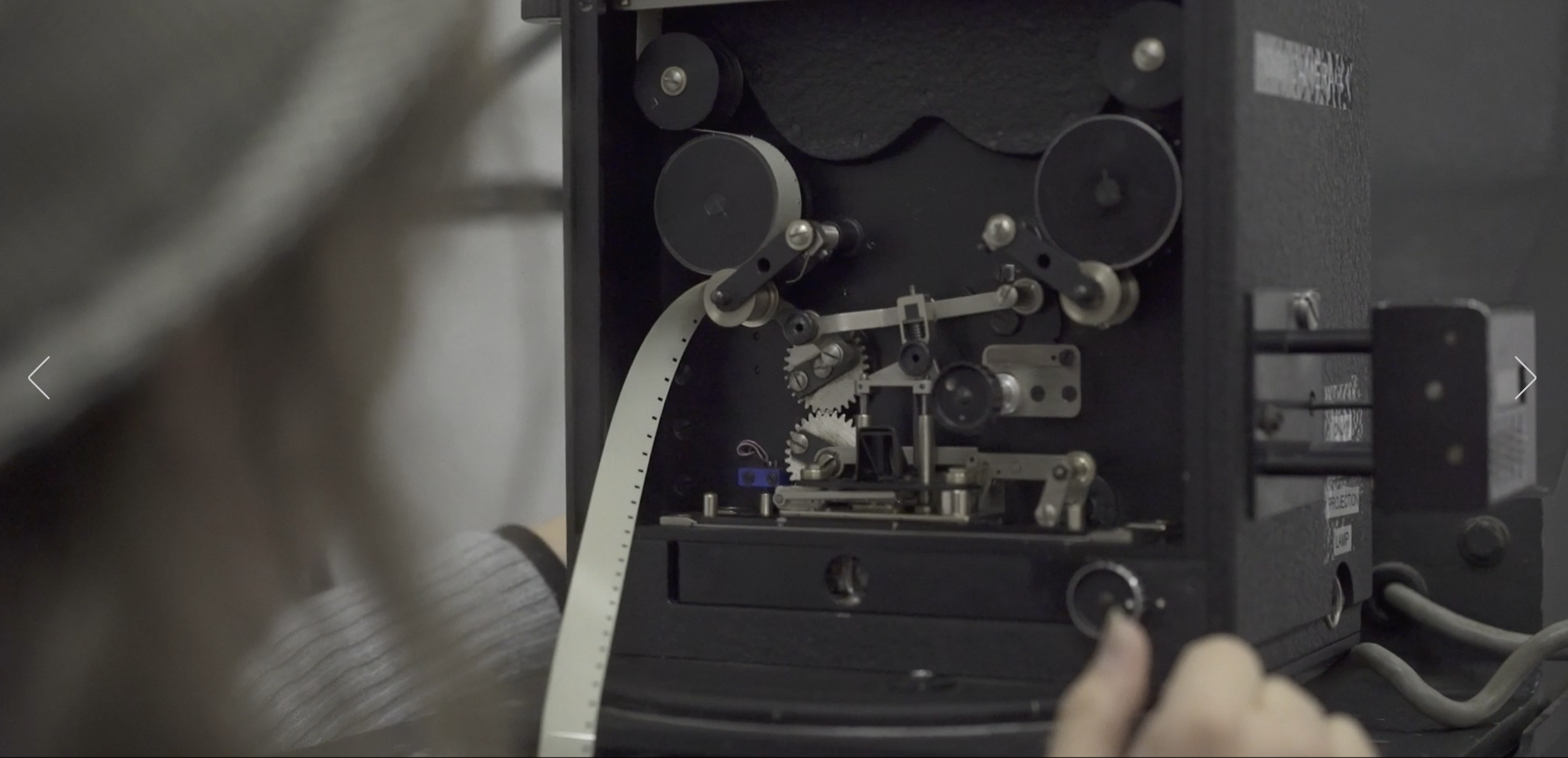
(c) Işıl Karataş
Wir haben einiges publiziert: Der Text ‚Installative Archive. Zum Potenzial temporärer Veröffentlichungen von und mit Fotografie‘ von Alexa Färber und Işıl Karataş über die Verwendung von Archivfotos als (künstlerische) Forschungsmethode wurde in Fotogeschichte veröffentlicht. ‚Die Bezeichnung Installative Archive weist auf die Veränderung der Raum-Zeit-Qualität, die sich aus der Bearbeitung eines spezifischen, meist vorgefundenen Archivs in einem räumlich und zeitlich begrenzten Format des Veröffentlichens ergibt. Zudem verschiebt das Format die Grenzen einiger Dichotomien, die für die Konstitution von Archiven grundlegend sind.‘ (Färber & Karataş 2023)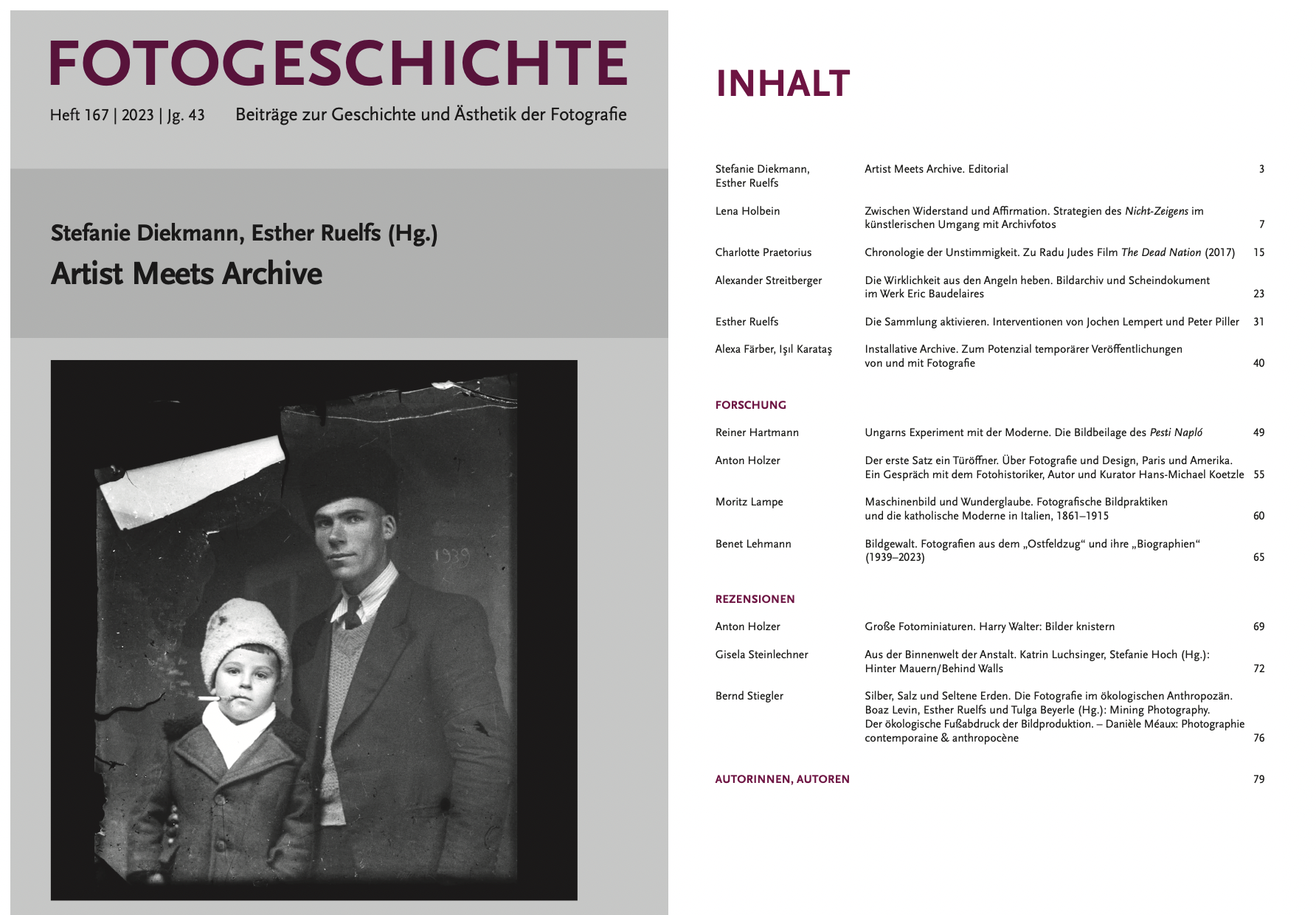
(c) Fotogeschichte
Işıl Karataş’s text ‚Sonorous materiality of analogue film‚ on the soundscapes of photochemical technologies explores the sensory aesthetics and non-human material components of artistic practices through sonic attention. The article published in NECSUS_European Journal of Media Studies asks: ‚How can sounds be used to establish the material relationship between sensory aesthetics and environmental sustainability that can help us rethink cinema histories and reshape ecologically-oriented cinematic futures?‘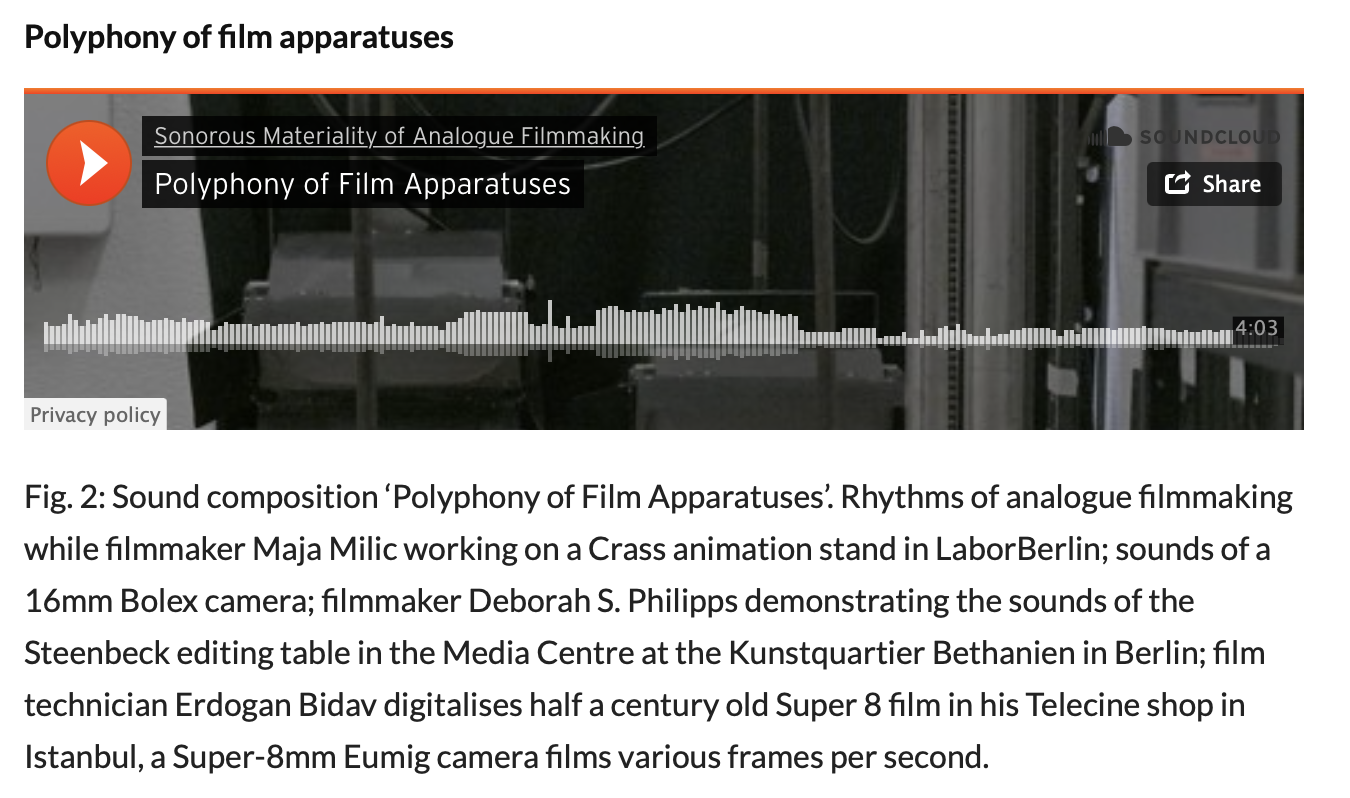
(c) Işıl Karataş
The experimental ethnographic film Analogue Practices in Digital Landscapes by Işıl Karataş can be openly accessed in the journal TRAJECTORIA of the National Museum of Ethnology, Minpaku Japan. ‚In an age marked by digital technologies, this film chronicles the everyday lives of artists working with obsolete or abandoned technologies, and the mechanics and retailers who keep them alive.‚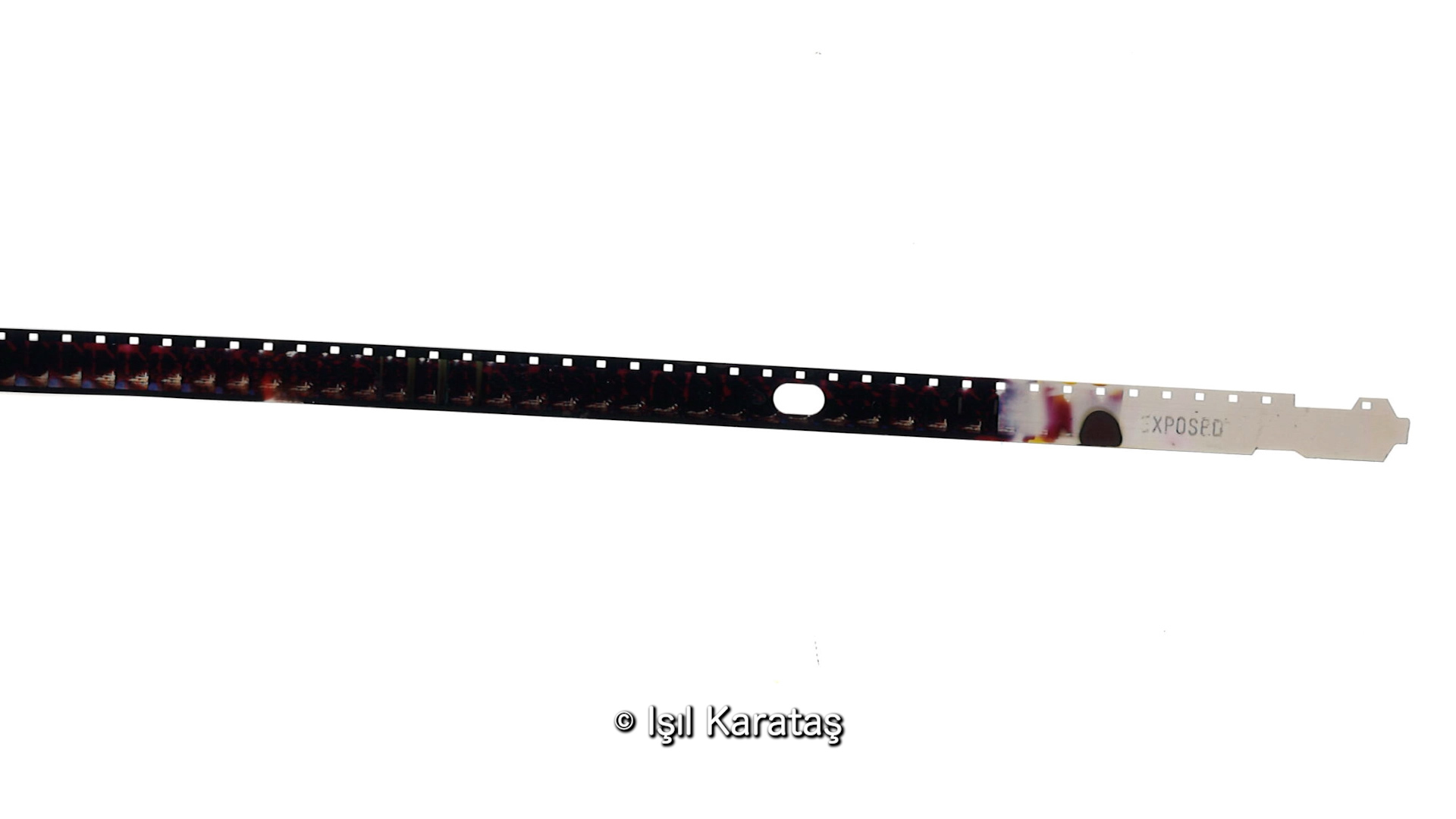
The international research project Infrastructuring Libraries in Transformation (ILIT) has started with its Zine-making Workshops. These workshops have been developed by Alessia Scuderi, one of our partners in this EU- and FFG-funded project. In the first workshop, we worked with librarians from the Büchereien Wien around the notion of care. You can find the first blog post about the workshop here and explore our almost brand-new homepage at the same time.
And we received a digital post(card) from our colleague Dani Schrire, with whom we held our workshop Living Together in photography, film and text: Promises of the Future and Imaginations of the Past last year in Vienna (funded by Joint workshop programme Hebrew University Jerusalem & Unversity of Vienna):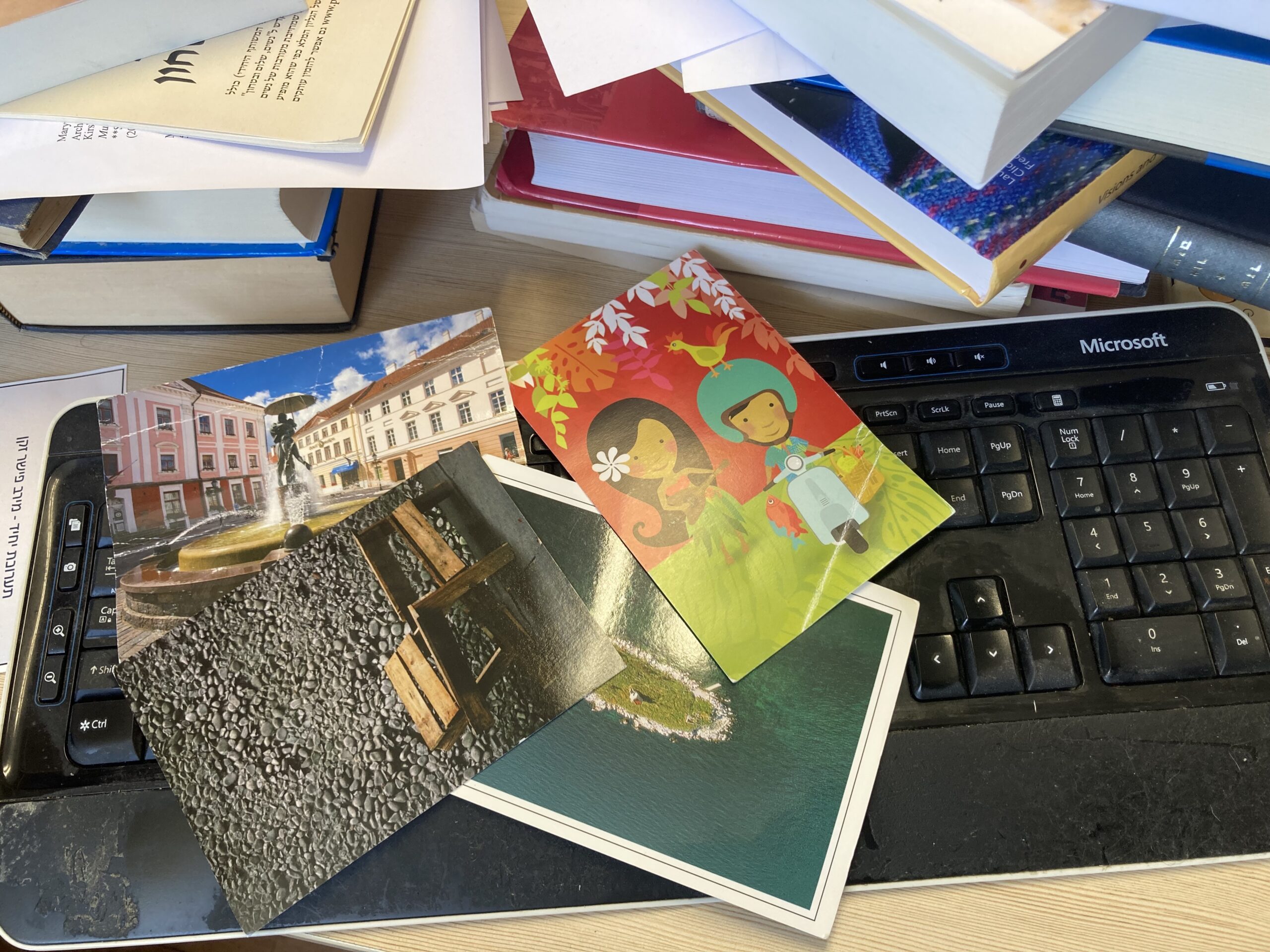
(c) Dani Schrire
„I continue my engagement with postcards. Together with PD Victoria Hegner from Göttingen University, we have been leading an exciting project titled „Postcards and Postcarding Culture in Germany and Israel 1960-2000: Addressing an Ambivalent Habitual Object in Times of Historical Upheavals.“ We even had the chance to visit together the archives of the museum of communication in Berlin. The project includes sending actual postcards between the team and an analysis of postcards in a period where these objects became banal. My presentation of my initial work on postcards before and after the June 1967 War in Vienna was recently published as an article which engaged the value of postcards, approaching them as ‚kaleidoscopic heritage‘. One unexpected upshot of this is that I keep on receiving postcards from colleagues from different parts of the world, which adds to the mess-desk as you can see… Well folks, send me a postcard!“ (Dani Schrire)
